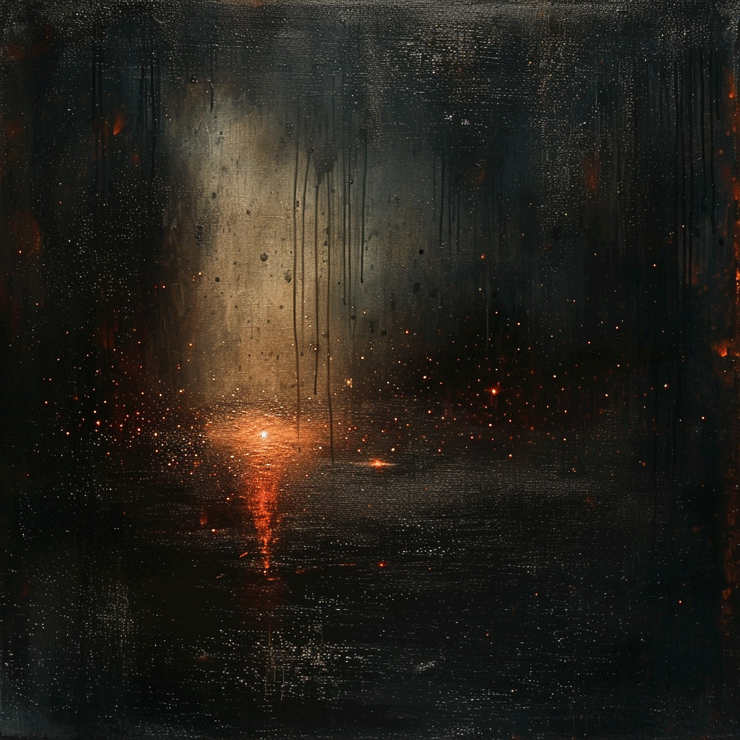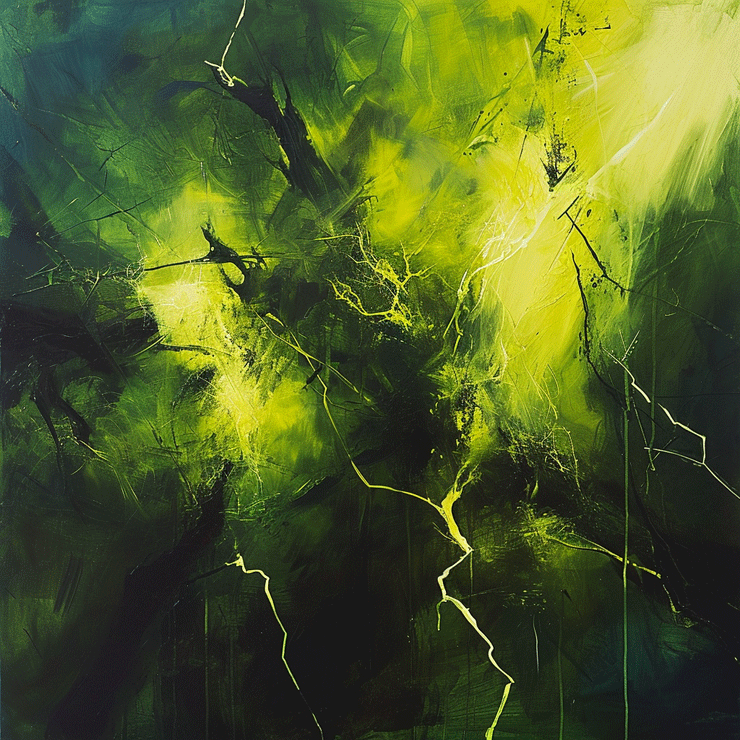
Explore our recent stories to see what drives us
Carina’s story: confronted with cancer pain
Using artificial intelligence (AI) to visualize the unseen

According to the International Association for the Study of Pain, 1 in 3 adults undergoing cancer treatment experiences significant pain. This pain can be severe and diverse, ranging from post-surgical pain to chemotherapy-induced neuropathic pain (1). In a European patient survey, we found that 30% of cancer patients are forced to stop work due to pain, 61% find their daily activities adversely affected, and 48% experience a drop in self-esteem (2). Carina's story underscores the urgent need for effective pain management and to close this care gap in cancer care.
To render the often-invisible facets of pain more tangible, we harnessed generative AI, using Carina's own words to create three artworks. These visuals capture key milestones in her pain journey, giving a vivid portrayal of her experience.
Hi Carina, can you tell us a bit about yourself?
My name is Carina. I'm 47 years old and currently working at Grünenthal. When I'm not at work I am a passionate scuba diver. I've had the privilege of swimming with whale sharks, dolphins, a turtle even fell in love with me once.
What were your first days of diagnosis like?
The night before the first COVID-19 lockdown, I found a lump in my breast, and it didn't feel good. I called my doctor the next morning and she referred me to a breast clinic for biopsies.
When I received the diagnosis of breast cancer, the feeling was indescribable, I had never felt that kind of terror before. The hardest part was the time between diagnosis and treatment. You know you're very seriously sick but no one is doing anything.
How was the cancer treatment process for you?
Chemotherapy was rough, I had 21 rounds of that. I lost 30 kilos, I couldn’t eat. The vomiting, hair loss, all the side effects that you see in the media are there, but no one tells you about the numb fingertips, the tingling, the complete lack of taste or smell.
When did the pain start?
The thing about (neuropathic) pain is that it’s gradual, barely noticeable at first. It feels like when you have been sitting on your hand or like tiny pinpricks. I first noticed the tingling in my fingertips during chemotherapy and found it more difficult to do tasks that require fine motor skills. For example, I couldn’t estimate how strong my grip was.

I think people don't talk too much about neuropathic pain because there's already so much going on. When you see your doctor for 10 minutes, what you need them to deal with is the rash that's keeping you from sleeping or that you haven't eaten in three weeks. It was a small indignity for me, but you just don’t need it on top of everything else. It really is just salt in the wounds.
How was the rest of your pain experience?
The worst pain was in my thigh bones, sacrum, and lower back. On my worst day, I was nonfunctional. I got out of bed, sat in a chair and realized I couldn't sit up because of the pain. It felt like someone taking a sledgehammer to your skeleton. My bones were aching so bad, I was in spasm, jerking around involuntarily. Visually I would describe this with a hideous color of green and jagged bolts of lightning going through my body.

Realizing pain or discomfort is gone and you can do what you want is like the sun coming up, suddenly giving hope that everything else can get better too. I was grateful for the pain medication for bone pain, reclaiming the ability to sit up in bed, walk, go to the bathroom. Simple but huge when you can't do them. That relief of being pain free, it’s literally like a change from night to day.

In your opinion, how can patients get better support?
The key is communication. I think patients should better prepare their conversations with healthcare professionals. List everything that's bothering you. They may not be able to fix everything, but they can fix some. Without your input, they cannot act. Even minor issues matter, eliminating one when facing a mountain of discomfort can make a significant impact.
Equally, healthcare professionals could improve by asking better questions. I experienced a wait-and-see approach and had to seek help for specific side effects. My nausea was for example managed well, but I lacked guidance on pain management. Patients dealing with cancer do not necessarily have the strength to be proactive.
So how does it feel to be part of a company that’s striving for a world free of pain?
I have certainly become more sympathetic. Pain is subjective and thresholds differ. I've certainly learned that it's not for me to judge how bad pain is for someone. Providing solutions to improve patients' lives, particularly in often neglected areas of the world, is crucial to me.
What surprised you the most in this experience?
The most surprising thing is how much you can recover and not just physically, but also mentally. For me, I've actually become happier. It has put things into perspective.
Using your words, we created three artworks with the help of artificial intelligence to visualize your pain experience. How do you feel about the outcomes?
Milestone 1: I think this captures the initial subtle sensations and ominous feeling that things are going to get worse very well.
Milestone 2: If having a favorite pain image isn’t insane, this one is mine. I think it captures the chaos of losing control of your own body and the terror of how much worse things can get.
Milestone 3: I love the sunrise as a symbol of hope, renewal, and an existence not defined by pain.
We are very happy to hear you’re on the road to recovery!
Thanks. Today I'm seeing a doctor about possibilities of getting back in the water hopefully this year!
Background
The annual World Cancer Day on 4 February is an opportunity to build global awareness about the relevance of cancer for the effected people and their families. The 2022-2024 theme is “Close the Care Gap”.
The Societal Impact of Pain (SIP) has an active platform addressing pain in cancer care and has released a position paper to be implemented in the EU´s Cancer plan. SIP is an initiative supported by Grünenthal.
M-N/A-HQ-11-23-0004